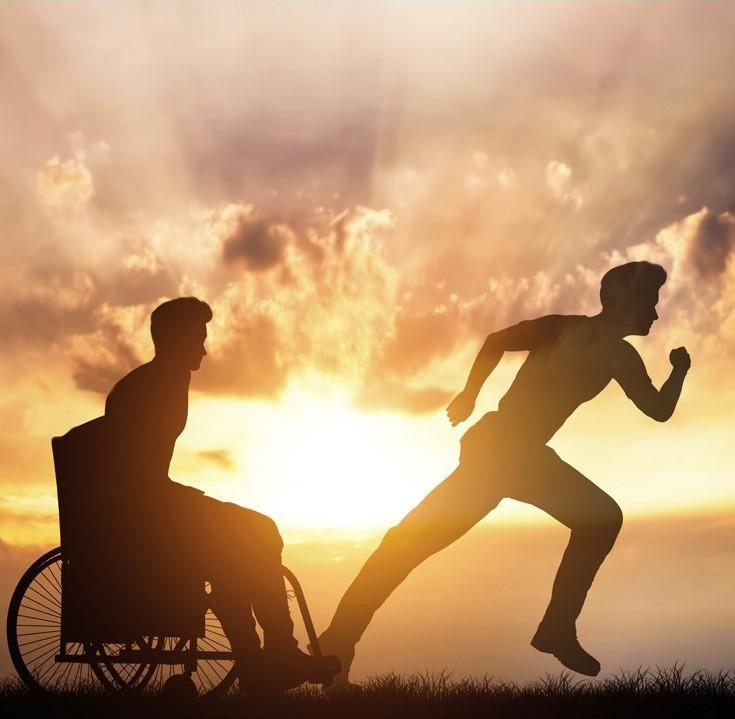
Life is unpredictable, and adversity can strike anyone at any time. Spinal cord injuries (SCIs) are one such adversity that can drastically change the course of a person's life. However, the human spirit is indomitable, and countless SCI survivors have defied the odds to lead inspiring, fulfilling lives. In this article, we will explore the incredible stories of these survivors and shed light on how they have broken barriers and triumphed over adversity.
THE IMPACT OF SPINAL CORD INJURIES
A spinal cord injury is a traumatic event that can result from accidents, sports injuries, or medical conditions. It often leads to paralysis or loss of sensation below the level of injury. Initially, the diagnosis can be devastating, but many survivors turn their adversity into an opportunity for growth and transformation.
1. Physical Rehabilitation
Physical rehabilitation is a crucial aspect of recovery for SCI survivors. Through rigorous and consistent therapy, many individuals regain strength, mobility, and independence. The story of Patrick Summerfield, who regained mobility after being diagnosed with a complete spinal cord injury, serves as a testament to the power of physical rehabilitation. His unwavering determination and years of therapy allowed him to regain the ability to walk.
HERE IS HOW PHYSICAL REHABILITATION HELPS SCI SURVIVORS
· Restoring Functionality
The primary goal of physical rehabilitation is to help individuals with SCI regain as much functionality as possible. Rehabilitation programs are tailored to the individual's specific injury and needs. These programs include exercises and therapies to improve muscle strength, range of motion, and mobility.
· Managing Complications
SCI survivors are at risk of various complications, such as pressure sores, respiratory issues, and urinary tract infections. Physical therapists provide education and guidance on how to prevent and manage these complications, improving overall health and well-being.
· Improving Quality of Life
Beyond physical improvements, rehabilitation also addresses the psychological and emotional aspects of recovery. Therapists work with survivors to enhance their self-esteem, self-confidence, and overall quality of life.
Physical rehabilitation is a comprehensive and essential component of spinal cord injury management. It helps SCI survivors regain function, independence, and confidence while reducing the risk of complications. The support and guidance provided by physical therapists are instrumental in enhancing the overall quality of life for individuals living with SCI.
2. Adaptive Technology
Modern technology has opened up a world of possibilities for SCI survivors. Wheelchairs, mobility aids, and assistive devices have evolved significantly, enabling individuals to lead more active and independent lives. The story of Steve Gleason, a former NFL player diagnosed with ALS (a condition that affects the spinal cord), highlights the transformative impact of technology. Gleason used eye-tracking technology to communicate and even went on to create Team Gleason, an organization dedicated to helping people with disabilities live meaningful lives.
Adaptive technology plays a pivotal role in improving the lives of spinal cord injury (SCI) survivors by enhancing their independence and accessibility. It includes specialized devices and software designed to address the unique challenges posed by SCI, such as mobility impairments and communication difficulties. Adaptive technology empowers SCI survivors by enabling them to operate computers, access the internet, control their environment, and communicate effectively, ultimately promoting greater autonomy and quality of life.
3. Mental Resilience
Overcoming adversity often requires immense mental resilience. Many SCI survivors, like Janine Shepherd, have faced not only physical challenges but also emotional and psychological hurdles. After a spinal cord injury ended her dreams of becoming an Olympic skier, Shepherd found solace in exploring new passions. Her journey to becoming a pilot and motivational speaker is a testament to the power of a positive mindset.
Mental resilience is of paramount importance for spinal cord injury (SCI) survivors as they face significant challenges and adapt to life-changing circumstances.
Here are some key factors that contribute to the mental resilience of SCI survivors:
- Positive mindset
- Social support
- Mental health care
- Acceptance and adaptation
- Setting realistic goals
- Narrative reframing
4. Community Support
The support of friends, family, and the broader community is invaluable to SCI survivors. Many organizations provide resources, advocacy, and a sense of community to those affected by spinal cord injuries. These networks can help individuals navigate the challenges of their new lives and find inspiration from others who have faced similar obstacles.
Community support for SCI survivors creates a sense of unity and empowerment. It offers emotional resilience, practical assistance, access to resources, and a supportive environment where survivors can thrive, helping them overcome the unique challenges of spinal cord injuries.
5. Advocacy and Research
Many SCI survivors have become advocates for research and policy changes in the field of spinal cord injuries. Through their efforts, they strive to improve the quality of life for future generations of survivors. Notable individuals like Christopher Reeve dedicated their lives to advancing spinal cord injury research, paving the way for groundbreaking discoveries and potential treatments.
The advocacy and research play critical roles in advancing the well-being and opportunities for spinal cord injury survivors. Advocacy efforts aim to promote the rights and inclusion of SCI survivors, while research endeavors seek to develop innovative treatments, technologies, and strategies to improve their quality of life and long-term outcomes. Together, these efforts offer hope for a brighter future for individuals living with SCI.
Conclusion
Spinal cord injuries are life-altering events, but they do not define the individuals who experience them. The stories of SCI survivors are a testament to the resilience of the human spirit and the capacity to overcome even the most challenging adversities. Through physical rehabilitation, adaptive technology, mental resilience, community support, and advocacy, these survivors break down barriers and inspire us all to approach adversity with courage and determination. Their journeys remind us that while life may throw unexpected challenges our way, our response to those challenges can shape our destinies and make us stronger than we ever imagined.
REFERENCES
https://www.mayoclinic.org/tests-procedures/assistive-technology-for-spinal-cord-injury
https://www.physio-pedia.com/Assistive_Devices_for_Spinal_Cord_Injury.